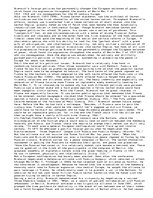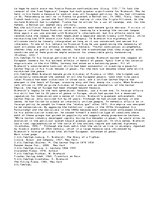-
Otto von Bismarck and His Foreign Policies
Bismarck's foreign policies had permanently changed the European balanced of power, which found its expression throughout the events of World War I of
1914 -1918 and its consequences for the XX century Europe.
Otto von Bismarck (1815-1898), Prusso-German statesman, was the architect of German unification and the first chancellor of the united German nation. Throughout Bismarck's efforts, Germany was transformed from a loose collection of small states into the German Empire, proudly named as the II Reich that soon became the most dynamically industrialized nation in continental Europe. Though Bismarck dominated German and European politics for almost 30 years, his career was a series of paradoxes. This "realpolitik" man, on one ultraconservative with a sense of strong Prussian Junker traditions and interests and on the other hand the first executor of the most advanced liberal ideas that gave the beginning of the social and welfare reforms in Europe. A charismatic genius who with his ability to look for the "perfect storm" with a great gift of anticipation, and intellectual flexibility, not only unified a collection of 39 states full of cultural and social diversities into German Empire, but most of all with his progressive foreign policies Bismarck had permanently changed the European balanced of power, which found its expression throughout the events of World War I of 1914-1918 and its consequences. Once the empire was established, he actively and skillfully pursued pacific policies in foreign affairs, succeeding in preserving the peace in Europe for about two decades.
…


